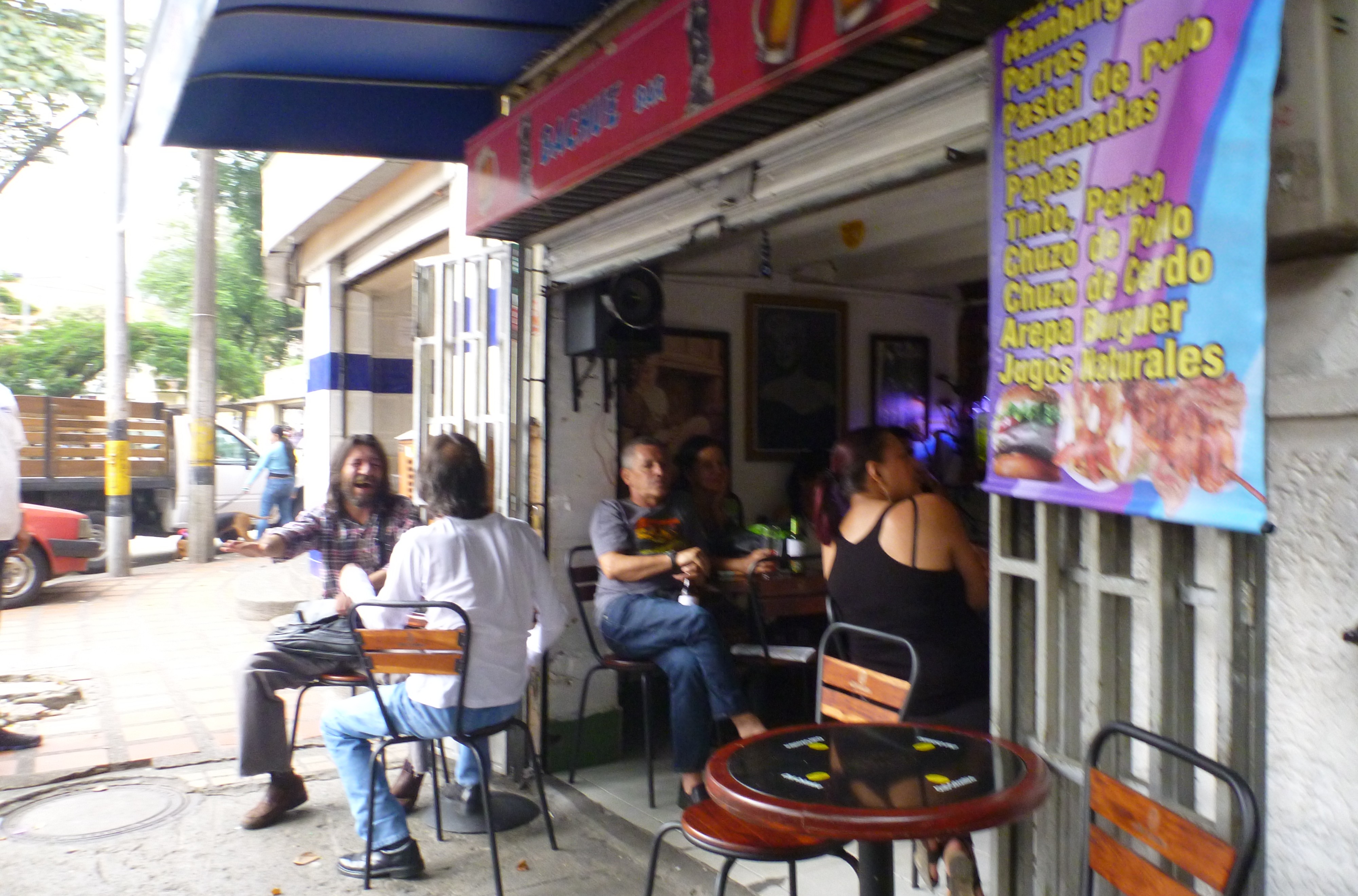Retracing the Steps: The Refuge of Freidel
January 19, 2016
In 2012, our passion for the complex visionary theatre-maker, José Manuel Freidel (1951-1990) brought Liliana and I together miles away from our native Colombia.
During our first meeting we discussed the possibility of staging one of his plays in Toronto. Liliana had worked with Freidel as an actor in a number of plays back in the 80’s. She knew the context in which his plays were written, and most of all, understood his incredibly rich and poetic language.
After meeting for six months, every Saturday, I realized that Liliana’s personal story, from her theatre life in Colombia, to her life as a refugee, was what Freidel, himself, would have perhaps wanted us to talk about.
Liliana and I finally had the opportunity to go to Medellin this past November with the one and only intention of finding Freidel.
We visited the old corner store, La Tienda de Doña Silvia, where Freidel would have some aguardiente before rehearsals. We went inside the theatre he founded, La Ex-Fanfarria, now taken over by some new group of young believers. We walked through the spaces of the new Ex-Fanfarria, now a few blocks away from the original and under the direction of one of his actors.
Downtown Medellin is home to a number of micro-theatres: spaces built inside the old colonial houses that fit up to fifty people, with the bare bones of a lighting grid and basic booths. I saw Freidel’s booth and I imagined him for a second sitting there and turning around to see who had just walked in and interrupt his rehearsal.
These spaces had been vital to the Medellin of the 80’s and early 90’s where some of the most independent and new ideas made part of the transformation of a city in transition. The city was undergoing a huge urbanization, mainly due to the violence in the countryside that displaced thousands of peasants, from their land to the city, where they were not wanted. Medellin was, for a time, the city of Pablo Escobar, of Eternal Spring. It is also where some of the most brutal violence of that time took place after the Narcos discovered El Dorado, which the Spaniards had never found. A Dorado that came in the shape of white powder is the enemy that the United States has never been able to defeat – because as one of our past presidents told CNN, “You are the ones who buy it and consume it”.
Tienda de doña Silvia
In this land of angels and demons, of poetry and desire, emerges one of the most important, and yet unappreciated voices of Colombian theatre, José Manuel Freidel: a young man who rejected Academia (although he taught theatre at the University) so that he could build ensembles. Universities were the growing grounds for theatre because it was where great thinking and rebellion was taking place. It was the time when young artists understood, as Freidel’s actor Norita Quintero says, “that theatre was not only important, but dangerous, and that we were part of something important”.
Freidel followed his own rules. Although he admired some of the European artists like Genet, he wanted to create a theatre that spoke about the reality around him. He managed to create a highly political theatre through metaphors rather than pamphlets. His politics came through in the authentic characters that lived and breathed on his stage.
Freidel loved theatre. In his 39 years of life he wrote and directed 36 plays, three of which he didn’t have the chance to direct before death found him on a street somewhere in downtown Medellin. He wrote by hand, always, on day timers and then his mother, doña Justina, would type them out. He could write entire plays within a few hours.
When Norita announced that she was quitting theatre because she was tired of so much marginalization, Freidel wrote in fours hours, inside a tent, in 40 degree heat, Monologue for a Sad Actor. Needless to say, Norita never left theatre.
Freidel died six days before the opening of El Padre Casafús o Luterito, based on the novel by Tomás Carrasquilla. His actors, however, decided to go on. The play opened the Thursday after his death, as scheduled. Norita says that during opening night, Freidel was in that theatre, with them.
Liliana and I were hoping to find all kinds of research material, photos, perhaps videos of performances when we went to Medellin, but all we found were memories. At the end, we understood that Freidel is here, with us, watching over us, as we too try to find our own voice in Canadian theatre.
– Beatriz Pizano
El Refugio de Freidel | The Refuge of Freidel runs Wednesday Jan 20 – Saturday Jan 23, 2016 as part of Progress, at The Theatre Centre, Toronto. For performance times and tickets, click here.

